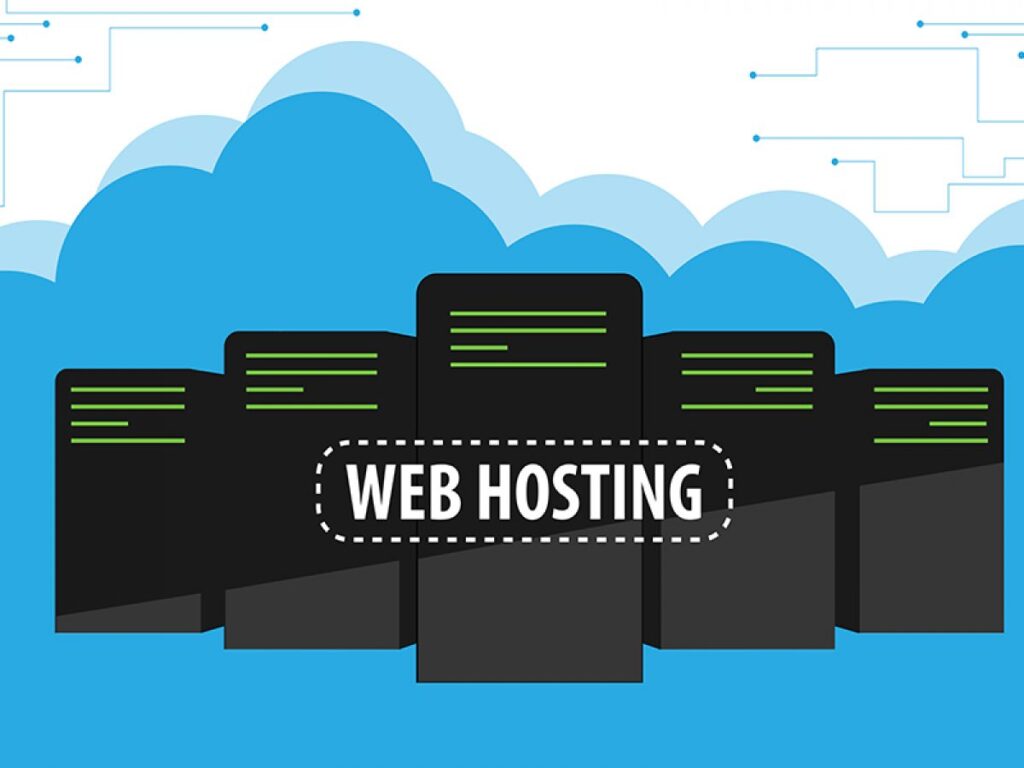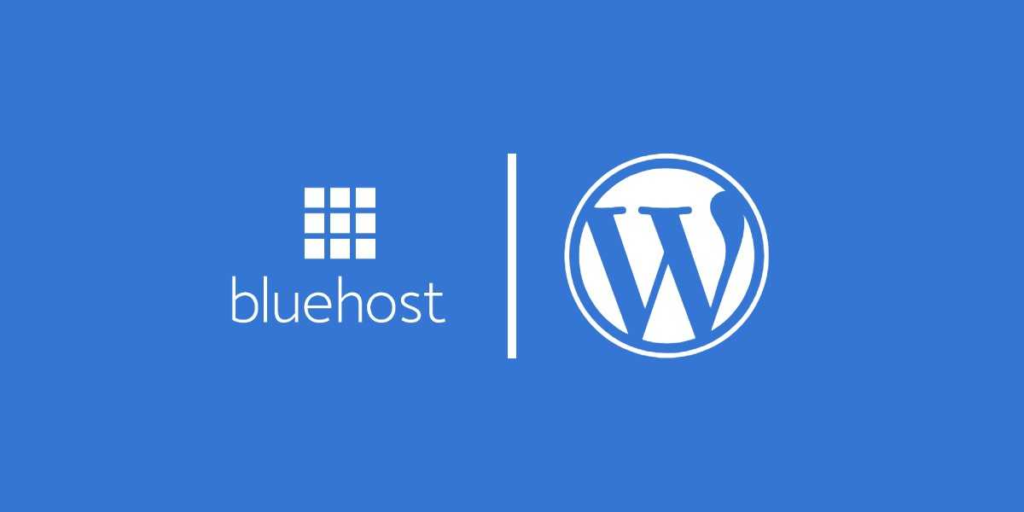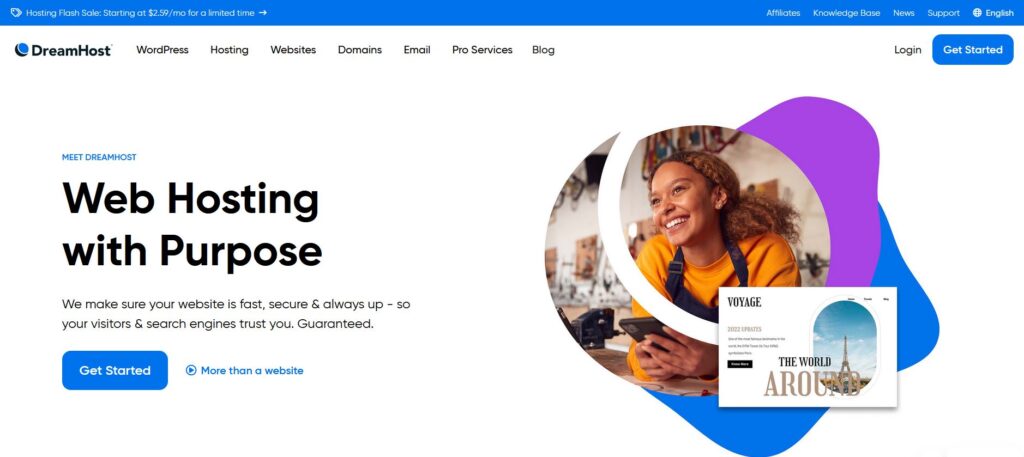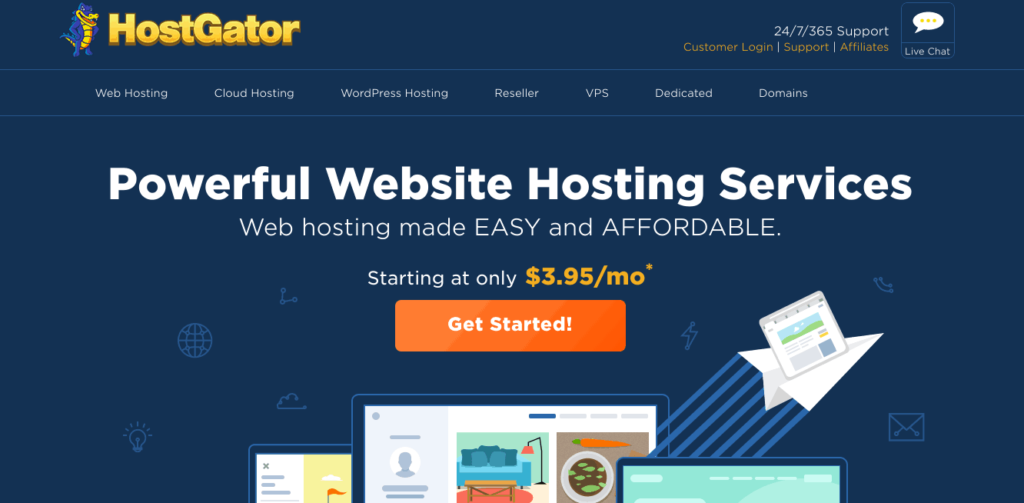
Selecting the right web hosting service is a pivotal decision for small businesses, as it lays the foundation for their online presence. A good web hosting not only ensures your website is accessible and fast but also secures your online data and enhances your search engine optimization (SEO) efforts. For small businesses, where budget constraints are often a significant consideration, finding a low-cost yet effective web hosting provider is essential. The ideal web hosting service should offer a balance of reliability, speed, and security, without breaking the bank. This balance allows small businesses to compete effectively in their respective markets, ensuring they can attract, engage, and retain customers through their online platforms.
In 2024, the web hosting landscape continues to evolve, with numerous providers offering a range of services tailored to meet the diverse needs of small businesses. From shared hosting plans perfect for new startups to scalable solutions for growing enterprises, the options are vast. However, not all web hosting services are created equal. To help small businesses navigate this complex landscape, we’ve compiled a list of the 5 best web hosting providers, evaluating them based on their performance, pricing, customer support, and scalability. Here’s a closer look at each provider, to help you make an informed decision for your business’s online success.
Best Web Hosting Providers for in 2024

As we delve into the specifics of each web hosting provider, it’s important to remember that the best choice for your business will depend on a variety of factors, including your website’s size, traffic, and specific requirements. Whether you’re launching a new site or looking to upgrade your existing hosting, these providers offer a range of options to suit different needs and budgets. Let’s explore what makes each of these web hosting services stand out in the crowded market.
1. Hostinger: The Budget-Friendly Powerhouse

Hostinger has established itself as a beacon for small businesses and individual users looking for an affordable yet reliable web hosting solution. With its roots stretching back to providing free web hosting, Hostinger has evolved into a powerhouse offering a wide range of hosting services without compromising on quality or performance.
Key Features:
- Competitive Pricing: Plans start as low as $1.99 per month.
- Impressive Performance: Utilizes LiteSpeed web servers for fast loading times.
- User-Friendly Interface: Intuitive control panel suitable for beginners.
- Global Data Centers: Ensures reduced latency and faster site speeds worldwide.
Plans and Pricing: Hostinger’s shared hosting plans are among the most affordable in the market, with the entry-level plan starting at $1.99 per month. They also offer VPS hosting, cloud hosting, and WordPress hosting, catering to a range of needs from basic blogs to more resource-intensive websites.
Pros and Cons:
- Pros:
- Exceptionally affordable with low entry-level pricing.
- Fast performance and strong uptime records.
- User-friendly for beginners and non-technical users.
- Cons:
- Renewal rates can see a significant increase.
- Advanced features may require upgrading to higher-tier plans.
Ideal Users for Hostinger: Hostinger is perfectly suited for startups, small businesses, and individuals venturing into the online world who seek an effective yet budget-friendly web hosting solution. Its blend of competitive pricing, user-friendly interface, and reliable performance makes it an excellent choice for those prioritizing cost-efficiency without sacrificing quality.
Read our full Hostinger review →
2. SiteGround: The Reliability Champion

SiteGround is renowned for its exceptional service quality, offering cutting-edge web hosting solutions that prioritize reliability, performance, and customer support. As a hosting provider officially recommended by WordPress.org, SiteGround caters to a wide audience, from bloggers to large businesses, ensuring a seamless and optimized hosting experience.
Key Features:
- WordPress Optimization: Officially recommended by WordPress.org for its optimized hosting solutions.
- Superior Customer Support: 24/7 expert support with impressive response times.
- High Performance: Utilizes innovative technologies for blazing-fast website speeds and uptime exceeding 99.9%.
- Enhanced Security: Comprehensive security measures, including free SSL certificates and daily backups.
Plans and Pricing: SiteGround’s hosting plans are designed to accommodate a range of needs, with shared hosting starting from $4.99 per month. They also offer WordPress hosting, WooCommerce hosting, and cloud hosting, providing scalable solutions for growing websites and businesses.
Pros and Cons:
- Pros:
- Exceptional uptime and reliability.
- Top-notch customer support and WordPress integration.
- Advanced security features for comprehensive protection.
- Cons:
- Higher price point compared to some competitors.
- Storage space limitations on lower-tier plans.
Ideal Users for SiteGround: SiteGround is an excellent choice for WordPress users, e-commerce sites, and any business or individual prioritizing reliability and top-tier customer service in their web hosting provider. Its advanced features and strong performance make it suitable for those willing to invest a bit more for premium hosting services.
Read our full SiteGround review →
3. BlueHost: The WordPress Expert

BlueHost is a key player in the web hosting industry, particularly celebrated for its strong affiliation with WordPress. Recommended by WordPress.org, BlueHost provides optimized hosting solutions that make it a favorite among WordPress users. Its blend of affordability, ease of use, and robust performance positions it as a go-to hosting provider for both new and experienced website owners.
Key Features:
- WordPress Integration: Officially recommended by WordPress.org, offering seamless integration and optimized performance.
- User-Friendly: Intuitive cPanel and dashboard, ideal for beginners.
- Reliable Performance: Solid uptime and speed, ensuring a smooth user experience.
- Comprehensive Security: Free SSL certificates and options for enhanced security measures.
Plans and Pricing: BlueHost’s pricing structure is designed to cater to a wide audience, with shared hosting plans starting at $2.95 per month. They also offer dedicated WordPress hosting, VPS hosting, and dedicated hosting, accommodating the needs of growing websites and businesses.
Pros and Cons:
- Pros:
- Competitive pricing with significant value for WordPress users.
- User-friendly interface and easy setup.
- Strong uptime and reliable performance.
- Cons:
- Renewal rates can be higher than the initial promotional pricing.
- Some plans have data storage and bandwidth limitations.
Ideal Users for BlueHost: BlueHost is best suited for WordPress website owners, ranging from bloggers to small and medium-sized businesses. Its user-friendly platform and optimized WordPress hosting solutions make it an excellent choice for those looking for a reliable, performance-oriented web hosting service.
Read our full BlueHost review →
4. DreamHost: The Versatile Performer

DreamHost distinguishes itself in the web hosting market with its versatile hosting solutions and a strong emphasis on reliability and user control. Offering a 100% uptime guarantee, DreamHost goes above and beyond to ensure your website remains online and accessible at all times. Its commitment to providing a user-friendly experience, coupled with robust security measures, makes it a preferred choice for a wide range of users.
Key Features:
- 100% Uptime Guarantee: A standout commitment to keeping your site always online.
- Custom Control Panel: Designed for ease of use and full control over hosting features.
- Comprehensive Security: Free SSL certificates, automated daily backups, and advanced security features for peace of mind.
- WordPress Optimization: Offers specialized hosting plans optimized for WordPress, ensuring peak performance.
Plans and Pricing: DreamHost’s hosting plans are competitively priced, with shared hosting starting from $2.59 per month. They also provide VPS hosting, dedicated hosting, and managed WordPress hosting, catering to the needs of both small personal sites and large business platforms.
Pros and Cons:
- Pros:
- Exceptional uptime with a 100% guarantee.
- User-friendly with a custom control panel for easy website management.
- Strong focus on security and privacy.
- Cons:
- The custom control panel might have a learning curve for users accustomed to traditional cPanel.
- Some advanced features and tools may require higher-tier plans.
Ideal Users for DreamHost: DreamHost is an excellent option for website owners who prioritize uptime, security, and the flexibility to grow. Its range of hosting solutions and the custom control panel make it suitable for tech-savvy users and those who prefer more control over their web hosting environment. Whether you’re running a WordPress blog, an e-commerce platform, or a large content site, DreamHost offers the reliability and tools needed to support your online presence.
Read our full DreamHost review →
5. HostGator: The All-Rounder

HostGator is recognized for its comprehensive range of web hosting services that cater to nearly every type of website owner, from beginners to seasoned professionals. With its reputation for reliability, scalability, and strong customer support, HostGator ensures that your website has the foundation it needs to succeed. Its user-friendly platform and competitive pricing make it a popular choice among small businesses and individual users alike.
Key Features:
- Wide Range of Hosting Options: From shared hosting to VPS and dedicated servers, HostGator offers a solution for every stage of your website’s growth.
- User-Friendly for Beginners: Easy-to-use control panel and website builder tools help users get their sites up and running with minimal fuss.
- Reliable Uptime: HostGator guarantees 99.9% uptime, ensuring your site remains accessible to your audience.
- 24/7 Customer Support: Accessible support through live chat, phone, and email to assist with any issues.
Plans and Pricing: HostGator’s pricing is designed to be accessible, with shared hosting plans beginning at $2.75 per month. They also offer specialized WordPress hosting, VPS hosting, and dedicated hosting plans, providing scalable options as your website grows.
Pros and Cons:
- Pros:
- Versatile hosting solutions that grow with your website.
- Competitive introductory pricing and a 45-day money-back guarantee.
- Robust support options for round-the-clock assistance.
- Cons:
- Renewal prices can be significantly higher than the promotional rates.
- Some users report mixed experiences with customer support responsiveness.
Ideal Users for HostGator: HostGator is a great fit for a broad spectrum of website owners, especially those looking for a balance between functionality and affordability. Its ease of use and reliable hosting solutions make it particularly appealing to small businesses and individuals launching their first website. Additionally, HostGator’s scalability ensures that as your website grows, your hosting can grow with it, making it a solid choice for long-term online projects.
Read our full HostGator review →
Finding Your Perfect Web Hosting Match
Deciding on the right web hosting provider is a crucial step in building a successful online presence. The ideal choice varies significantly based on individual needs, website goals, and technical requirements. Whether you’re launching a small personal blog, an e-commerce platform, or managing a large-scale business website, understanding your priorities is key to selecting a web hosting service that aligns with your objectives. Here are some considerations to help you find your perfect web hosting match:
- Budget and Pricing: Determine your budget for web hosting services. If you’re just starting out, a cost-effective shared hosting plan from providers like Hostinger or HostGator may be ideal. Remember to consider long-term costs, including renewal rates.
- Website Performance Needs: Evaluate the importance of website speed and uptime for your project. For high-performance needs, SiteGround and DreamHost offer robust solutions with excellent uptime guarantees and speed optimization.
- Ease of Use: For beginners, a user-friendly interface and easy website management tools are crucial. BlueHost and HostGator are renowned for their intuitive control panels and straightforward setup processes.
- Scalability: Consider your website’s growth potential. If you anticipate needing to upgrade your hosting plan in the future, look for providers that offer seamless scalability options, such as VPS or dedicated hosting plans.
- Technical Support: Reliable customer support can be a lifesaver, especially for those with limited technical expertise. Evaluate the support channels and responsiveness of the hosting provider’s customer service team.
- Security Features: Ensure your chosen web hosting provider offers robust security measures to protect your website and user data. Look for features like SSL certificates, daily backups, and malware protection.
- Specialized Hosting Needs: If you’re running a WordPress site, for example, choosing a hosting provider that offers WordPress-optimized hosting plans, like BlueHost or SiteGround, can significantly enhance your site’s performance and ease of management.
By carefully considering these factors, you can narrow down your options and choose a web hosting provider that not only meets your current needs but also supports your website’s future growth. Remember, the best web hosting service is one that offers the right balance of features, performance, and price for your specific situation.
